Author: admin
2025 St. Dominic Medal Recipient: Bp. Daniel Flores
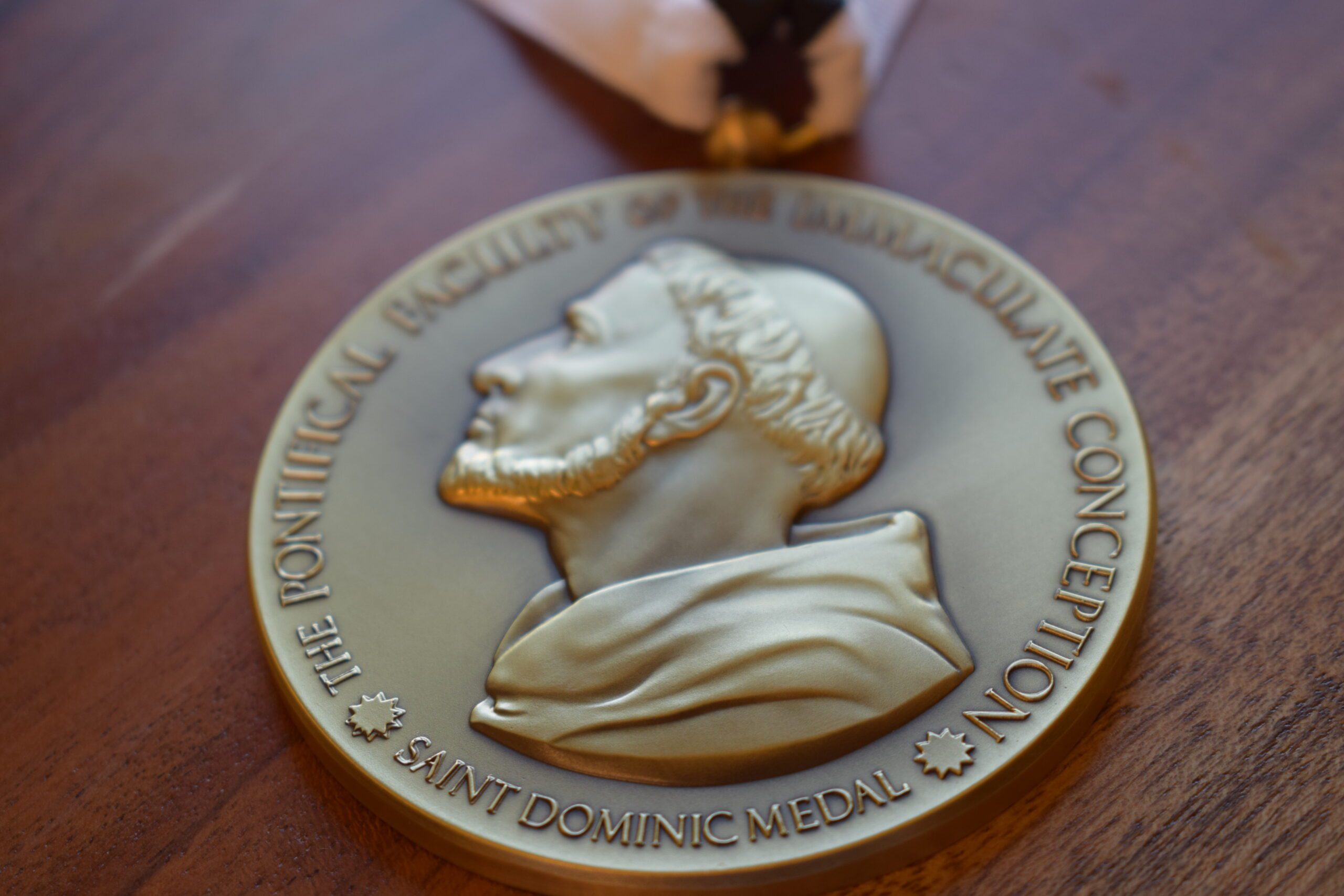
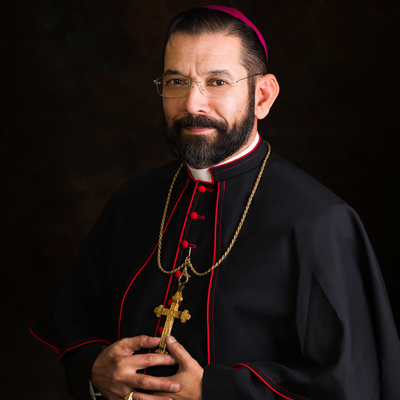
We are pleased to announce that His Excellency, Bishop Daniel Flores S.T.D., Bishop of Brownsville, TX, will receive the Saint Dominic Medal at this year’s Commencement ceremony. This honor is awarded to those individuals who, through demonstrated competency in their life’s work, have advanced the ideals of the Pontifical Faculty of the Immaculate Conception, thus promoting and bringing recognition to the charism of the Dominican Order. During Bishop Flores’s episcopacy, he has embodied the Pontifical Faculty’s commitments to truth and holy excellence by implementing innovative and effective programs to spread the Gospel in his diocese with a privileged focus on synodality.
Bishop Flores will give the commencement speech at this year’s ceremony on Friday, May 16 where both civil and ecclesiastical degrees will be conferred on the graduating students of the Pontifical Faculty of Immaculate Conception.
Due to limited capacity, attendance at the Commencement is by invitation only. Please pray for Bishop Flores and the graduates of the Pontifical Faculty for God’s blessing in their work of proclaiming the clarity of Christ to a confused world.
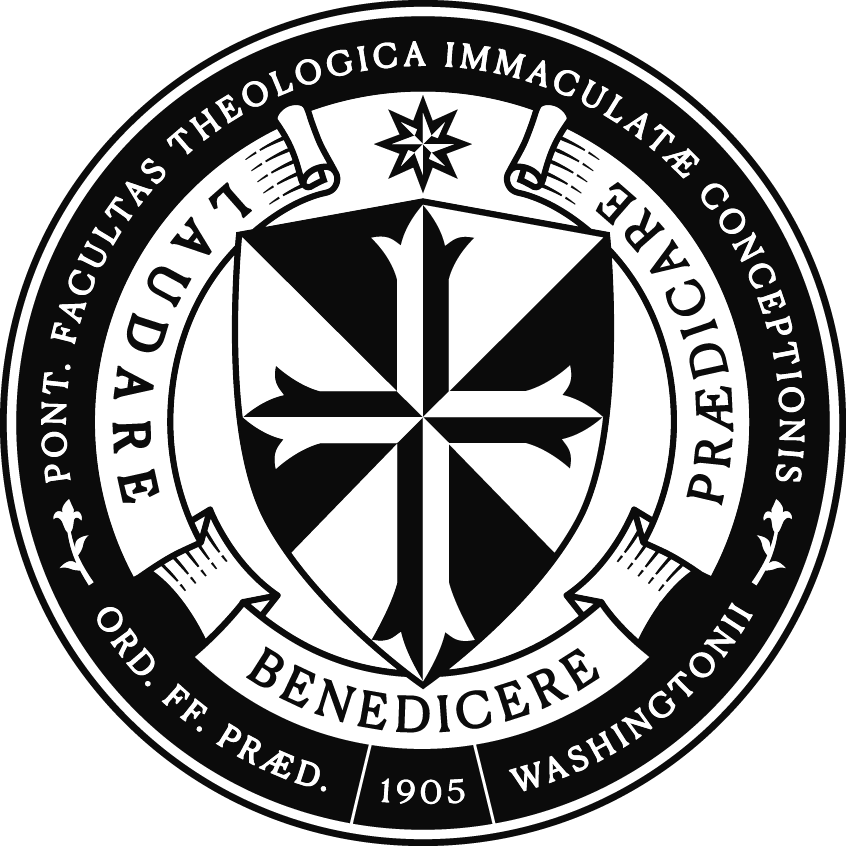
Finding Joy Through Serving Christ

When individuals are compelled to heed God’s calling and fulfill His purpose for them, the Dominican House of Studies stands ready to receive, form, and prepare them to bring souls to Christ.
For some of our students and alumni, there was never any doubt they would join the priesthood. Others may have a less linear journey. In their cases, a life experience plants a seed that grows within. In God’s time, that lesson ultimately leads them down the path to serve Him with all their heart, mind, and soul.
For one of our alumni, Father Zachary Sexton, the seed was planted when he was only eight years old after the tragic loss of his father.
The lesson he learned was this: Even in our darkest moments, Christ is with us.
In the last few years of his life, Father Zachary’s dad experienced an intense reversion to the Catholic faith. In His divine providence, God was preparing Mr. Sexton for eternal life while giving him the tools to lay a foundation of faith for his son.
Father Zachary, a self-described “nervous kid,” often had trouble sleeping on Sunday nights, knowing he would have school on Monday. He vividly remembers his dad teaching him to pray the Rosary to calm his fears and find sleep as he toiled with worry and uncertainty about everything that could happen the next day at school.
When young Zachary asked his dad if that would make the Blessed Mary think he found her boring, he replied, “No, son. Think of it as if you are falling asleep in her arms.”
Drawing Closer to God In Tragedy
His dad’s death placed Father Zachary at a profound life crossroads, even while being far too young to know what that meant.
“That was one of these pivotal moments in my life where I could have gone the other way,” Father Zachary says. “I could have decided life is meaningless and done whatever I wanted, or recognized there is something beyond this life and done something about it.”
The lessons his dad taught him ran deep. The Blessed Mother’s calming embrace grew tighter. Through God’s grace, Father Zachary chose hope and faith over despair.
A Journey of Faith and Discovery
“I became the de facto Catholic in my family at age eight,” he recounts. “I was the person people came to for answers, and I learned how to work hard to find them.”
After being tested in the “crucible” that is Western Rhode Island, which he describes as “nominally Catholic in the same way Taco Bell is Mexican food, it has the trappings and much of the flavor profile, but not much authenticity,” Father Zachary informed his mom of his desires to become a priest at age 14.
As he matured, he went to a diocesan vocation weekend and found that he loved the devotion diocesan priests embody, but he was not as intrigued with the solitude that most diocesan priests lived. So, he attended Providence College and earned the credentials to become a high school biology teacher.
Fulfilling A Call
Father Zachary was exposed to the Dominicans while at Providence College, and his priestly desires continued to grow.
“I quote Revelation 9:13,” he said. “Who are these men in white, and whence have they come?”
“I was drawn to the Dominican order because I saw these men who formed, prayed, and taught together,” he continued. “Unlike the diocesans who had to work independently, the Dominicans are more like a Navy SEAL team where everyone has a particular role, and the job gets done precisely and very well.”
After three years as a teacher, Father Zachary looked within himself, prayed for guidance, and felt the call to revisit his youthful desire to become a priest. He entered the novitiate of the Province of St. Joseph.
“Working as a Dominican has taught me to be better,” he said. “It recognizes my strengths and doesn’t press as hard on my weaknesses.”
Father Zachary became keenly aware of recognizing God’s grace in the novitiate, not just in his life but in the lives of others. He came to understand that dependence on God is the key to happiness and freedom, even though it can be challenging for a person to see it that way.
Finding Freedom
“Freedom is not found in the person who can get whatever he wants,” Father Zachary shared, “because ultimately you become bound to those things. True freedom is found in grabbing the only thing that matters: the saving promise of the Lord Jesus Christ. Dependency on God is the ultimate freedom because you don’t need stuff. You can operate in any circumstance because the only thing you need is God.”
At the Dominican House of Studies, friars learn to overcome their natural, worldly desires and develop a close relationship with God. His truth loosens the world’s bonds and empowers men to obtain their eternal rewards.
Truth is light that guides us through the tempests of doubt and insecurity that rage around us and lead us astray.
Father Zachary said, “If people realized how beautiful Heaven was, they would be conformed to the good and chase after it. That’s what we want. It is easier to run towards happiness than run away from sin. We teach people to understand happiness first.”
Gaining an understanding of true happiness is fuel for the soul. Dominicans acquire and share knowledge to fulfill people’s desperate need for this understanding. By bestowing knowledge, Dominicans chart the path to salvation.
Sharing Christ’s Truths
Veritas, which means truth, is the motto of the Dominican Order. St. Dominic’s mission for his order, the mission that lives on today, is to use truth and knowledge to point souls to Jesus Christ. Truth is at the foundation of the curriculum at the Dominican House of Studies.
“That’s ultimately our project,” Father Zachary summarized, “the salvation of every human life we encounter. At the macro level, it can look like directing people and culture and pointing everybody towards the Lord Jesus Christ as the light and the way out of the storm. And it can also look, on the micro level, more individual. It can be more about showing someone how God is working in their own life and how He’s drawing them closer to Him.”

“So, some of our focus is this huge project where we teach the tempted to overcome the tempest of the world, and we magnify all the lights pointing towards the Lord,” he continued. “Or it could be a focus on the tempest of one person’s heart and soul to help them understand their purpose in the world and where they’re going.”
Guiding Souls to Happiness
Ultimately, finding happiness is about finding clarity. Father Zachary and our other alumni light the path so that others may grow to understand that money, power, and possessions pale in value to the bounty that comes with immersing yourself in Christ’s Word.
If you hunger for His grace and His Word, you will never experience physical hunger.
“This is what you actually want, not all those other things you are filling yourself with,” Father Zachary said. “All the good things you think you want are centered on Him. The rewarding thing about being a Dominican is that I can teach people how to get there, and when I light their lamp, they can show countless others how to get there, too.”
Overcoming Challenges of the World
Life provides trials and challenges. We cannot avoid them. We can, however, lessen the blows that come our way by arming ourselves with the Word of God and seeking His grace. All things that are good in our hearts are put there by God.
We must act on the good with more force than we allow lament and sorrow to act upon us. Father Zachary leaned on the tragic loss of his dad as an opportunity to grow closer to God, not move further away.
One path leads to darkness, and one path leads to light. One to sorrow and pain, one to happiness and joy.
Let us pray for the strength to follow Father Zachary’s example. It will lead to salvation and the salvation of countless souls you draw to the Light of Christ. Being a friend to Christ is to make more friends for Him and to increase the population of Heaven as they gain a fuller understanding of all the promises He has made and fulfilled.
The eternal happiness of doing His work is exponentially greater than any worldly happiness we can find in our mortal existence on earth. If you seek God in all your endeavors, you will find true joy in all you do.
If you feel compelled to support our mission in educating and training individuals like Father Zachary, you can do so here.
2024 St. Dominic Medal Recipient: Mr. John Garvey


We are pleased to announce that Mr. John Garvey, Esq., former president of the Catholic University of America and noted constitutional law scholar, will receive the Saint Dominic Medal at this year’s Commencement ceremony. This honor is awarded to those individuals who, through demonstrated competency in their life’s work, have advanced the ideals of the Pontifical Faculty of the Immaculate Conception, thus promoting and bringing recognition to the charism of the Dominican Order. During Mr. Garvey’s tenure as president of the Catholic University of America he has embodied the Pontifical Faculty’s commitments to truth and holy excellence by implementing innovative and effective programs to renew the academic rigor of our nation’s oldest pontifical university.
Mr. Garvey will give the commencement speech at this year’s ceremony on Friday, May 10 where both civil and ecclesiastical degrees will be conferred on the graduating students of the Pontifical Faculty of Immaculate Conception.
Due to limited capacity, attendance at the Commencement is by invitation only. Please pray for Mr. Garvey and the graduates of the Pontifical Faculty for God’s blessing in their work of proclaiming the clarity of Christ to a confused world.

How the Dominican House of Studies Empowers Teachers to Send His Light Into the World

It could be argued that there is no higher call than providing young souls with the Light of Christ so that they may draw on that power throughout their lives. Imparting the ability to discern good from evil is invaluable in a world where the differences between the two are increasingly blurred.
Dominican House of Studies’ alumna Sister Maria Catherine heeds this call. As a Dominican Sister of St. Cecilia, she instructs third through eighth graders daily at St. Mary’s Catholic School, a parish school in South Carolina.
Using lessons and instructional methods she honed and acquired at the Dominican House of Studies, she guides young people to an understanding of their value and purpose as children of Christ.
Formation at the DHS
Growing the faith of children and supporting families in their mission to bring Christ into their hearts is the mission of the Sisters of St. Cecilia. Women who enter the Nashville Dominican Sisters either have a bachelor’s degree in education or earn one after joining the community. To increase their effectiveness as teachers, the sisters remain devoted to studying and growing their knowledge of Christ throughout their religious lives.
Sister Maria Catherine came to the Dominican House of Studies to earn her master’s degree through an intensive five-year summer program. The Friars developed the program for sisters to study and understand the thoughts and teachings of St. Thomas Aquinas in the Summa Theologiae.
“I had already studied St. Thomas somewhat,” Sister Maria Catherine recounted, “but studying that with the Friars really brought me to understand Thomas’s love for scripture and to learn how to walk with my brother Thomas in a deeper understanding of the truth that the Lord’s giving in the scriptures.”
Understanding St. Thomas’s vision helped her see the whole plan of God and comprehend the richness of the life of holiness in Jesus that the Lord has in store for each of us. Gaining this deep personal knowledge has been foundational in Sister Maria Catherine’s continued devotion to God and her mission.
“The Friars taught me how to take St. Thomas as a guide in understanding myself,” she said, “and enriching my own vocation of belonging to Christ enhanced my service to the families and children I teach. I learned how St. Thomas explains the truth of the person so clearly, and it has enabled me to articulate the truth more clearly and guide young souls to the joys of Christ.”
Teaching the Children
Sister Maria Catherine finds great blessing in shining the light and directing young people to overcome the distractions today’s world bombards them with. All the technology they use, the entertainment they consume, and the activities they participate in to fill their time do not fill the hole in her students’ hearts.
“These kids never have the time to stop and see the bigger picture,” she said. “They never get a chance to ponder their direction and see the true beauty of life. The world has filled them with a need to have their time constantly filled with empty things, and there is a lack of seeing that every moment can have meaning if we allow Christ to give light, meaning, and joy to every minute.”
Empowering students to grasp this truth is no small feat. Sister Maria Catherine blends the knowledge her students have been given by loving parents in their home with the enlightenment she has acquired at the Dominican House of Studies and throughout her religious life. Through her joy and zeal, students move from knowing who Christ is to developing a personal relationship with Him. Establishing that relationship forms a greater understanding of their destiny in God and with God.
“We heavily focus on the magnanimity of the soul,” she said. “We make sure they understand that the Lord has a call for them and a purpose for them and that responding to His call has an impact on the whole world. It’s not just that Jesus loves them. It’s that He has a mission for them. He’s using them in ways they can’t even see. They light up when they come to understand that their life has a divine purpose.”
The Reach of Her DHS Formation
Gifted educators teach in the manner they learn. At the Dominican House of Studies, Sister Maria Catherine experienced firsthand the power of reading, discussing, and growing in knowledge as a group. During her studies, she realized that the discussions and questions that came up with her Sisters were similar to those of her students.
The Dominican Sisters of St. Cecilia often incorporate the Socratic method into their teaching, and the growth Sister Maria Catherine experienced through this style at the DHS refined her technique and purpose for employing it in her classroom.
“I really like to teach kids how to read a text in depth and learn how to analyze and dissect something meaningful and substantial,” she stated. “Then I have them discuss it with their peers. They learn to trust that they can think, reason, and know the truth of their faith.”
The impact of this knowledge is more substantial than bringing one young soul to Christ.
“It’s definitely effective for their personal conversion,” Sister Maria Catherine continues, “but it also teaches them how to evangelize and bring more souls to the Joy and Light of Christ.”
Why The Work of the Dominican House of Studies Matters
St. Dominic believed that God wanted truth and knowledge to be the typical path to salvation and wanted all to have it. The Dominican House of Studies continues St. Dominic’s mission by equipping Sisters and Friars with the tools they need to evangelize Christ’s Light to the world.
“I love the imagery of St. Dominic with his torch setting the world on fire with the love of Christ,” Sister Maria Catherine shared. “I am grateful the Lord saw fit to invite me to DHS and be a part of His process. Refining my knowledge of His Word and strengthening my bond with Him has prepared me to bring as many souls to Him as possible by spreading His joy and filling the holes in the hearts of the children I teach.”
Sister Maria Catherine moves young people to eschew the hollow distractions of the world and instead fill their hearts and minds with the solid Word of Christ. Those who receive His Word will influence others to seek the same joy and happiness.
Consider yourself and your circle. You may not have the same opportunity to evangelize Christ’s love to young people as this great sister and DHS alumna does, but pray for His guidance in finding opportunities to bring more souls to Him in any way you can.
Fr. Basil Cole, O.P. named Master of Sacred Theology

Emeritus Professor Father Basil Cole, O.P., was recently given one of the highest honors of the Dominican Order. He was named a Master of Sacred Theology and now follows in a long line of great theologians going back to the founding of the Order. With overwhelming support, the 2022 quadrennial Provincial Chapter of the Province of St. Joseph nominated Father Cole to the Master of the Order for this honor. After consulting other experts, the Master, Father Gerard Francisco Timoner, O.P. made Father Cole a Master of Sacred Theology on October 17th.
During vespers on Wednesday, January 10th in the Chapel of the Priory of the Immaculate Conception, the decree naming Father a Master was read and the insignia of the title were conferred. First, he received the ring as a sign that he has been espoused by Wisdom. In keeping with tradition, the ring is set with an amethyst stone. It also bears the shields of both the Dominican Order and the Province of St. Joseph. He was then given the black and red four-peaked biretta, which is a symbol of Masters of Theology, and is often worn during solemn academic ceremonies.
A festive dinner with guests and the community followed.

On Thursday, January 11th Father Cole delivered a magisterial lecture in Aquin Hall to an audience of nearly one hundred people. The title of his lecture was “Spiritual Beauty and the Challenge of the Life of Virtue.” Following closely the thought of St. Thomas Aquinas, the singular Master of Theology, Father Cole elucidated the importance of the arts—particularly literature, painting, and music—in helping a person grow in virtue.
On receiving the honor, Father Cole noted that the honor belonged not just to him, but to all those who’ve encouraged him, supported him, and to all of his students over the years. He continues to write and publish. He has a number of manuscripts preparing for publication.
Forgetfulness
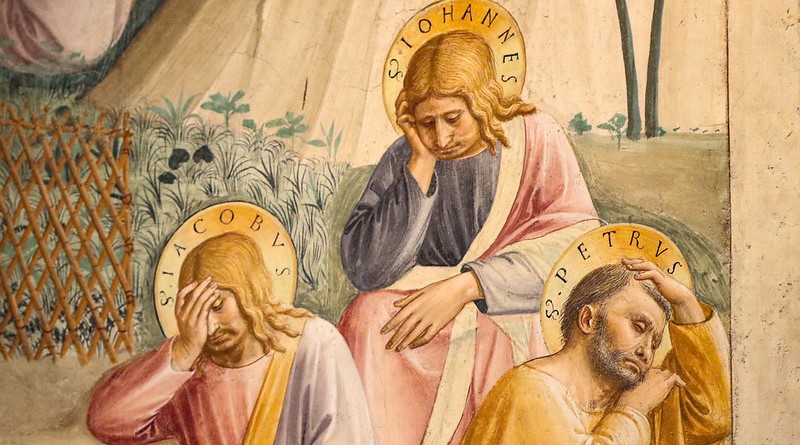
“Josh and the Big Wall!” was one of my favorite episodes of VeggieTales. I was always frustrated with the beginning, however, when Bob the Tomato explained that the Israelites would have already gotten into the Promised Land if only they had listened to God.
When I was first learning these Biblical stories as a kid I fell in love with God, easily convinced of his love by his mighty wonders. Thus, it made no sense to me that they would disobey God, especially so soon after he had saved them from the Egyptians. “If I had been there,” I thought to myself, “If I had seen what they had seen, then I would have . . .” But the truth is, I myself was beginning to grumble in the desert.
Many years later, when I was a freshman in college, I felt called to pray but found that the Our Father was the only prayer I remembered; I just repeated it over and over again. What had happened to me?
I had forgotten God’s wonders of old. I had forgotten the Lord’s words of life. I had forgotten his goodness. I had forgotten the truth entrusted to the Church. I had forgotten all that the Lord had done for me. I found that I had turned away from my childhood faith. Forgetfulness is a tricky thing. It seems involuntary (at least it almost always seems so when we are the ones forgetting), but forgetfulness is certainly not blameless. It is an excuse, but never a satisfactory one. “Forgetting” to do my chores was never left unpunished.
And rightfully so. Forgetfulness is not spontaneous. It is gradual and secretive. I always found it easy to forget my chores when I turned myself away from my mother’s call upstairs and towards whatever game I was playing, show I was watching, or book I was reading. Certainly, Eve made it much easier to forget the divine command when she was thinking all about how “the tree was good for food, and that it was a delight to the eyes . . .” (Gen 3:6). And the Israelites, turning to their perceived misfortunes, quickly forgot the Lord’s mighty deeds and that their “God is a God who saves” (Ps 68:21).
Sin makes us forget. Sin is a “turning away” that makes it easy to forget. And it has a compounding effect, as the only way we can justify our sin to ourselves is through a forgetfulness of God—such as forgetting his presence, his love, or that he is our final end. If we were able to forget that there is a God, then we would not be reminded of the eternal consequences of our actions and we would be able to live an easy life. Men “suppress the truth by their wickedness” (Rom 1:18). And with the truth suppressed, sin is easy.
Thus, the awareness of God is essential: “there is no practice more vital to our spiritual growth; for the presence of God is indeed the very sunlight of the soul” (Anselm Moynihan, O.P., The Presence of God, 3). The saints teach us about this all-important awareness. Saint Peter is the perfect example: he sinks when he takes his eyes off Jesus (Matt 14:30). But then, after his denial, it is when the Lord “turned and looked at Peter” that Peter remembered (Luke 22:61). To be aware of God brings about the realization that he is steadily gazing upon us; that he is waiting, longing, desiring with great desire for the love only our hearts can give him. Cultivating awareness of God is nothing less than preparing for heaven. It is possible for man to forget anything if he allows his mind to go elsewhere. But you will find that it is always possible to remember again. “If you turn to him with all your heart and with all your soul . . . then he will turn to you and will not hide his face from you” (Tob 13:6).
✠
Photo by Fr. Lawrence Lew, O.P. (used with permission)
Originally posted on Dominicana Journal on 8/1/2023.
Can You See That You Are a Prophet?
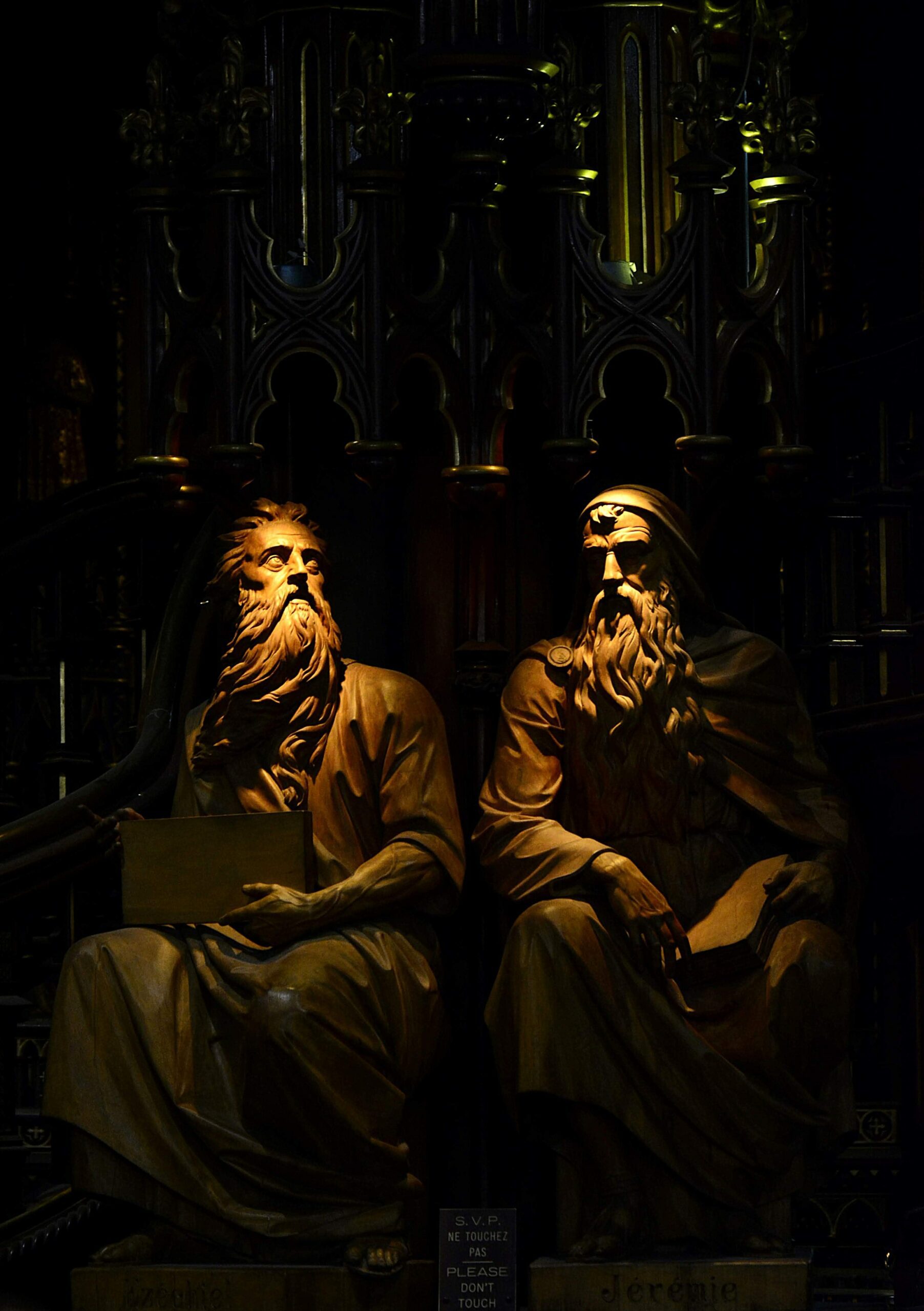
When we think of the Prophets, we think of Elijah and Elisha performing miracles, of the words and oracles of Isaiah or Jeremiah, and ultimately of Christ, who is the fulfillment of the Old Testament Prophets. The woman at the well says to Jesus, “Sir, I can see that you are a prophet” (John 4:19) because he had told the woman “everything” she had done, manifesting himself as “a prophet mighty in deed and word before God and people” (John 4:39, Luke 24:19). Given these prophetic words and acts of Jesus and the Old Testament prophets, we might balk at the idea that “the holy people of God shares also in Christ’s prophetic office” (LG 12). The Catechism goes further to say that by baptism, “the whole People of God . . . bears the responsibilities for mission and service that flow from [the prophetic office]” (CCC 783). You bear the responsibility for prophetic mission. You bear the responsibility for prophetic service.
“We wish to see a sign” (Matt 12:38). We might be tempted to think our participation in the prophetic office is watered down and insignificant, perceiving a gap between the biblical prophets and ourselves. We expect the prophet to predict the future or to produce mighty deeds; the biblical prophets have surely done this and none as excellently as Christ. A certain knowledge of God’s plan and miracles certainly follow from the prophets, but the prophet is not a simple fortune teller or magician. Two aspects stand out as more crucial to the prophet’s identity than oracles and wonders. And it is to these fuller aspects of the prophetic life that the Church calls you.
Firstly, the prophet is called to intimacy with God. Scripture says of Wisdom, “in every generation she passes into holy souls and makes them friends of God, and prophets” (Wis 7:27). True wisdom and true prophecy belong to the friends of God. The Lord himself calls Moses his “intimate friend” (Exod 33:17). All the prophets were friends with God, with Incarnate Wisdom himself showing us the fullness of intimacy with our Father. You too have received this call to intimacy: Wisdom comes to make friends, prophets, “in every generation.”
Secondly, the prophet must intercede for the people. For this, Moses is praised in the Psalms—he stood in the breach before God (Ps 106:23). God calls the prophets to be instruments of both justice and mercy. The prophets preach justice, but pray for mercy. God is desirous of this prayer and puts it on the prophet’s heart. Christ, again, shows us the might of intercessory prayer, perhaps most evidently in his prayer for the disciples (John 17).
The prophet is a friend of God and an intercessor. It is in this context that the Holy Spirit will give the gift of prophecy (1 Cor 14). Then the words and deeds we associate with the prophets will come to light. Saint Dominic’s intimacy with God and his prayer for sinners is the perfect model. By day he preached with firm truth and proved himself to be the joyful light of the Church, but all night he prayed alone before the Lord for sinners. Dominic stood in the breach before God, speaking “to God or about God,” as friend and intercessor.
This is what it means to bear the responsibility for prophetic mission and service: to become a friend of God and an intercessor for the people: “You shall love the Lord, your God, with all your heart, with all your soul, and with all your mind. This is the greatest and the first commandment. The second is like it: You shall love your neighbor as yourself. The whole law and the prophets depend on these two commandments” (Matt 22:37-38). Our call to the prophetic office is not meant to be a pale imitation. You bear the responsibility for prophetic mission. You bear the responsibility for prophetic service. So what are you to do? Pray, pray.
✠
Photo by Sneha Cecil on Unsplash
Originally posted on Dominicana Journal
The Cross, Again?
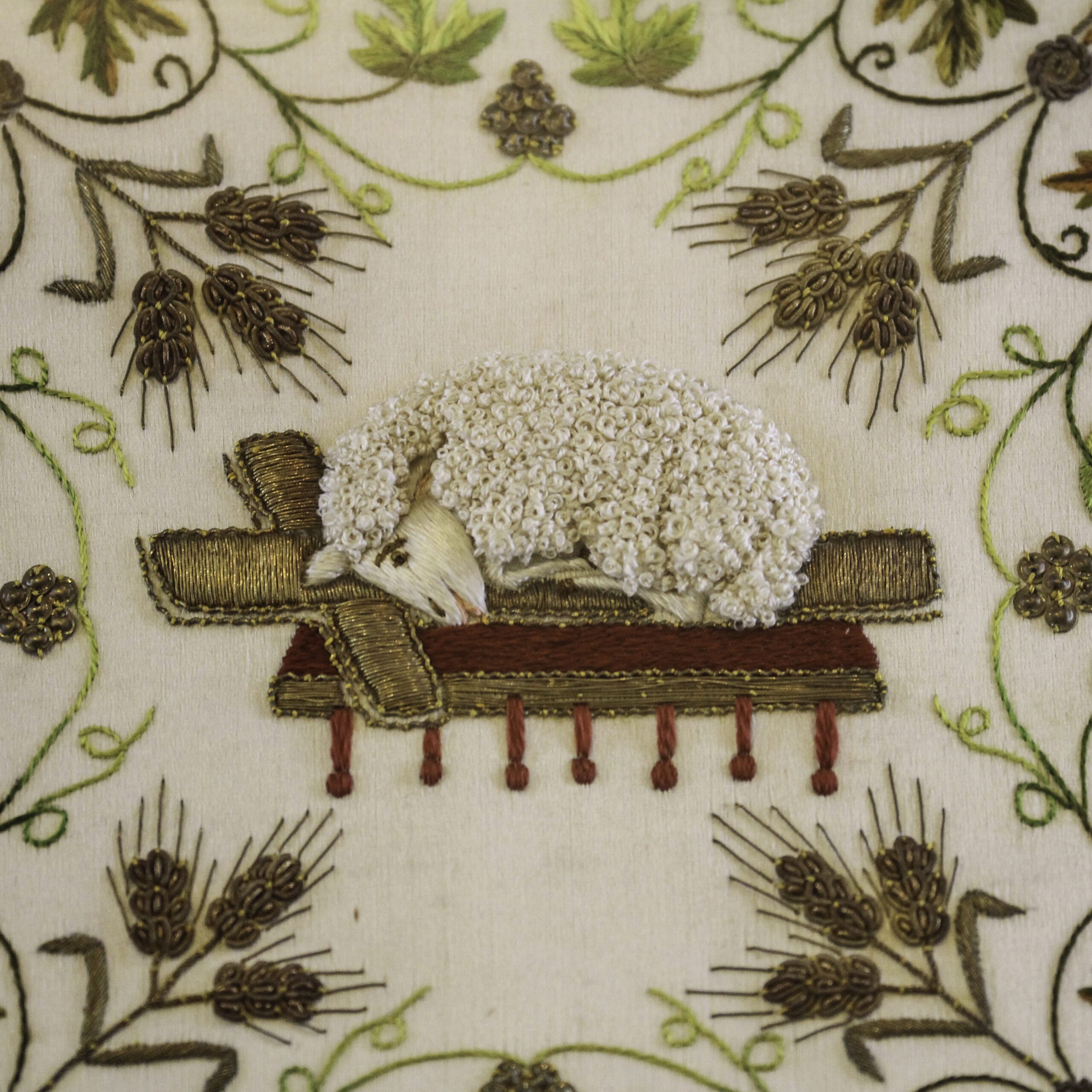
Why do we talk about the Cross outside of Lent? Hasn’t Jesus won the victory over death and sin already? Can’t we just sing our alleluias and eat Peeps? The Church continues to talk about the Cross, especially during the Easter season, to remind us that the Resurrection shows us the true meaning of the Cross. The Resurrection, rather than pushing the Cross into the shadows, illuminates the Cross and reveals it to be the greatest demonstration of God’s love for us. When we look at the Cross in the light of the Resurrection, we can see at least two things: first, God has power over death and sin; and second, God’s love is Cross-shaped.
When we look at the Cross in the light of the Resurrection, we see God’s incredible power over sin and death. One of the unfortunate consequences of familiarity with our Lord’s Passion and Death is that we can become desensitized to the depths of the suffering that Christ endured at the hands of the Romans. The beatings, the scourging, the crowning with thorns; being torn to shreds, stripped, nailed, and left to die on a piece of wood—all of this was deeply traumatic.
Jesus predicted his Passion again and again throughout his ministry because he knew that the scandal and darkness of the Cross would frighten his disciples and that they would be tempted to doubt him. It is only in the light of the Resurrection, in the light of God’s power, that the disciples are able to see the suffering and death of Christ, not with merely human eyes, but with eyes of faith. They are able to see the suffering and death of Christ, not as something to be ashamed of, but rather, something in which to boast. In the light of the Resurrection, the Cross becomes the power and the wisdom of God.
Again, in the light of the Resurrection, we see that God’s love is Cross-shaped. It is through the love of Christ that we know the depths and the heights of God’s love for us. The Resurrection reveals that Christ’s sufferings and death were filled with love for the Father and for us. Saint Paul reminds us of this in his Letter to the Romans: “But God shows his love for us in that while we were yet sinners Christ died for us” (Rom 5:8). It is precisely Christ’s death on the Cross for us sinners that reveals exactly how far God will go so that we might become His friends.
God goes to the Cross for us, taking our sins and our death with Him. The Resurrection shows us that it is in Jesus’ death that we have eternal life. What is true for Christ is true for us as well. In this Easter season, the Church invites us to look at our crosses in the light of the Resurrection. She invites us not to push our crosses into the shadows, but rather to expose them to the light of Christ’s Resurrected glory. Only when we see our crosses illuminated by this light will we be able to recognize the depths of God’s presence and love in the sufferings of our lives, and so look forward to the glories of the resurrection.
✠
Photo by Fr. Lawrence Lew, O.P. (used with permission)
Originally posted on Dominicana Journal
The Tree of Prayer
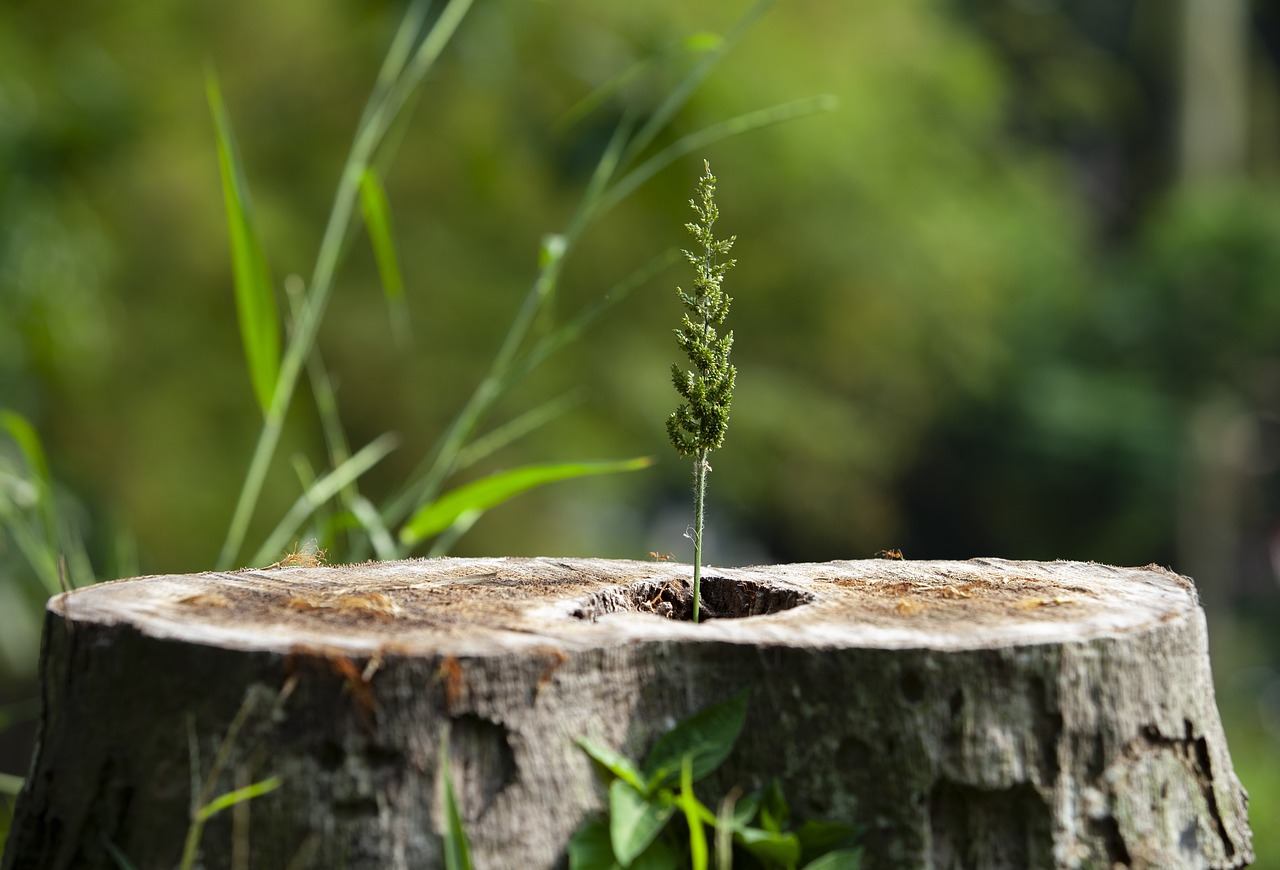
One day at lunch, one of the priests with whom I live asked me a question I never expected near the end of my formation at the Dominican House of Studies: “Which tree are you most proud of?”
Now, it was reasonable that he did ask, seeing as I have planted about 50 trees around the House over the past four years. I planted most for shade, privacy, beauty, or fruit, so it took me a second to think which one I could say I was most “proud” of. But quickly I realized there was no real question about it. There was one tree that was not planted for any of these reasons, but simply because it was outgrowing its pot and needed to go somewhere.
This tree, when planted, was nothing more than a 6-foot-tall pole; it was just a skinny trunk with no branches or leaves. Had someone seen it, he would have thought it was just a stick that was stuck in the ground (as more than a few brothers had joked). Because of its less-than-remarkable qualities, this sad thing was placed out of the way near plenty of other trees, just in case it didn’t make it.
But I took a liking to this tree. Whenever I was praying my rosary in the backyard, I would stop in front of this tree and ask God to make this tree thrive.
This, in a way, can be seen as the story of a Christian at prayer. This tree was deemed the weakest of the trees that we planted that year, and in reality, it was. But the power of God is made perfect in our weakness (2 Cor 12:9). When we are at our weakest, we turn to God in prayer, prayer that is constant, prayer that is simple, and prayer that trusts even when it doesn’t see any results.
This tree was planted in the winter, many months before any signs of life could be expected. I would make my daily walk around the backyard, saying my rosary, stopping in front of the tree, then continuing on. Eventually spring came and I looked forward to seeing signs of life … but none came. All the other trees were coming to life. The sap was flowing. Buds, blossoms, leaves, and branches were all being brought forth. But from this weak little tree, nothing.
I continued my daily walks, almost giving up hope for the little guy, but still stopping in front of it, asking God to help it out. And surprisingly (though it should not have been) this is exactly what happened! First a small bud, and then a small branch; within months it was very clear that this small prayer had been answered.
I continued my prayers for it to thrive for a few years, but with a small addition: a short prayer of thanksgiving for the life that God had already bestowed upon this tree. This tree actually grew taller and more beautiful than any of the other stronger trees that we had planted in more ideal locations.
This small prayer that I offered up for this tree is the same prayer that I and many others have offered up for my life. We are called to be weak and meek by all worldly standards, but it is the meek that will inherit the world. Every Christian will go through winters in this life, when we are stripped of all that we thought made us beautiful, healthy, or alive. But “God does not see as a mortal, who sees the appearance. The Lord looks into the heart” (1 Sam 16:6-8).
By embracing a life of prayer that is continual, simple, and trusting, we become more alive than ever, even if we can’t always see it. Just as the tree loses its dead leaves, we are stripped of everything unnecessary. The life that was visible in the leaves for everyone to see retreats to the innermost parts of the tree where only God can see. This life may wait inside the Christian for days, months, or years, but it is always there, waiting to be brought forth at the right time, by the warmth of the rising Son.
✠
Photo (via Pixabay)
Originally posted on Dominicana Journal
Give It Up for God

What is the most important thing in your life? What would you do if God asked you to give it up? For some it might mean surrendering a talent: a beautiful voice or the world’s most accurate free-throw. For others it might be a loved one. For still others it might be their freedom. Imagine there’s no limit to the thing God asks of you—could you do it?
Mother Teresa, in her book Come Be My Light, writes of an experience that occurred at the beginning of a long period of darkness in her life. Expressing her dismay at how much God has asked from her, she writes:
“I just can’t express anything. I don’t know why [it] is like this—I want to tell, and yet I find no words to express my pain. Don’t let me deceive you. Leave me alone. God must be wanting this ‘aloneness’ from me. Pray for me. In spite of everything, I want to love God for what He takes. He has destroyed everything in me.”
Despite this darkness, by God’s grace, she continued giving up her life to God, little by little until there was nothing left. She surrendered quite literally everything. She even gave up her freedom, for after many years as superior general of the Missionaries of Charity, she asked Pope John Paul II to allow her to step down and let another sister run the congregation. He simply replied to her, “Do not refuse Jesus.” It was Jesus who asked her—through her congregation and then through the Pope—to give everything for the sake of his will.
Yet, this request of God is not just for the exceptional saint. It sometimes happens that even we ordinary people lose something important, even the one thing that defines who we are—that most important thing. Beethoven, one of the greatest composers ever, lost his sense of hearing. The French impressionist, Claude Monet, was blind for the last decade of his life. Even in our own Dominican family, Fr. Reginald Garrigou-Lagrange, one of the brightest modern minds of classical Thomism, lost much of his ability to think before he died.
The reality is that even after you’ve given everything, there is still one thing that God desires. He will call your soul home, for even that belongs to him. It is a stark reminder that we are not made for this world, but for the next. Those little “asks” of God—surrender your money, surrender your time, surrender your freedom—prepare us to surrender our whole lives. That is why it is important to take those less profound sacrifices and make them intentional. “God, I give this to you because I love you, and I know you love me.” In this way, we may grow to realize that God is the source of every good that we have (ST I, q. 6, a. 4). And when he calls us home, it is nothing to fear. He is the greatest good for which we could ever hope.
When we finally recognize our smallness, our nothingness, our emptiness, it is then that God can fill us up with himself. “When we become full of God then we can give God to others, for from the fullness of the heart the mouth speaks” (Mother Teresa). God gave us the most precious gift of life and, one day, he will ask it back from us. Let us pray that, at that moment, we might be emptied of everything, and our heart filled with his love.
✠
Image: Quandary by Michael Belk from Journeys with the Messiah (used with permission)
Originally posted on Dominicana Journal
